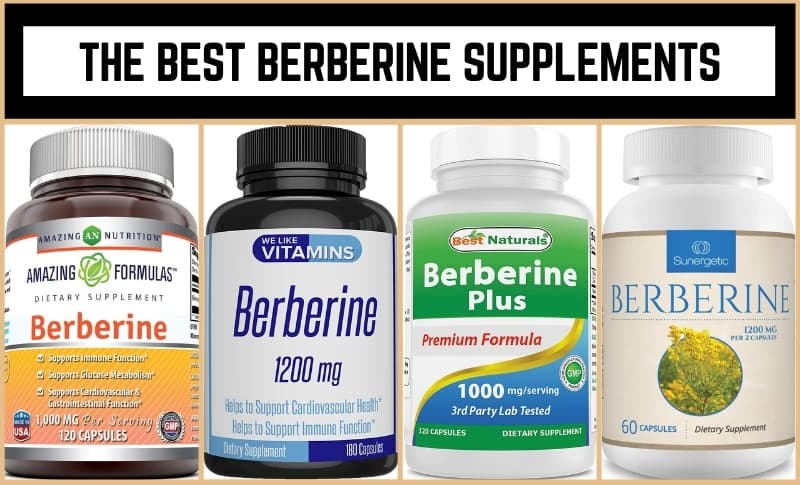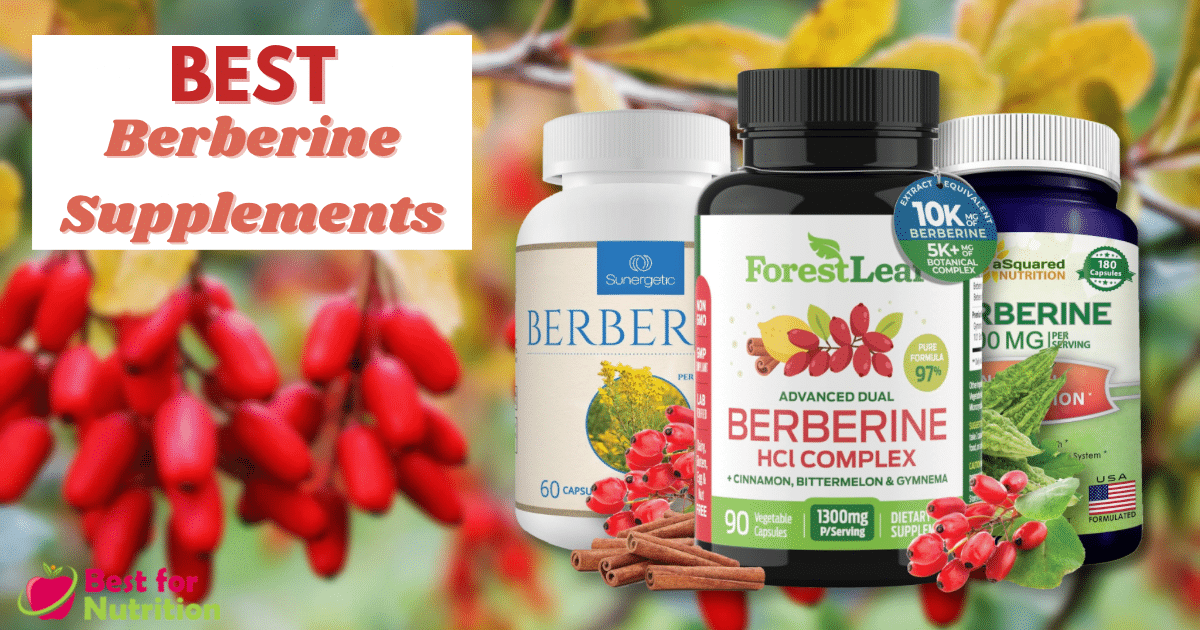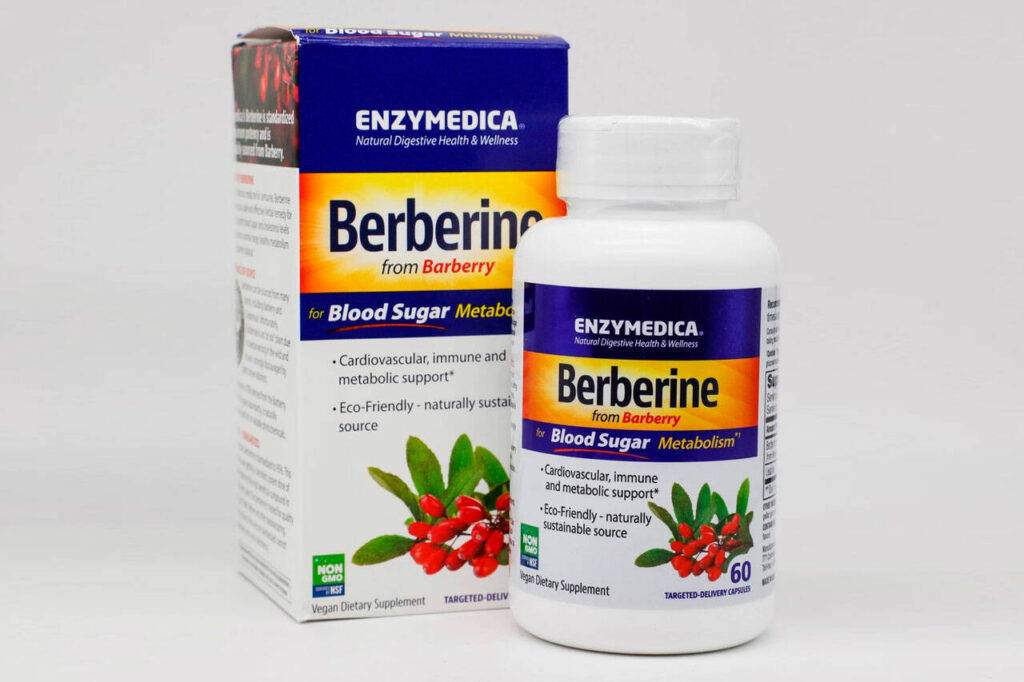What Is The Best Berberine To Buy

The supplement market is a vast and often confusing landscape, filled with promises of health benefits and miracle cures. Among the numerous options available, berberine has gained significant traction, touted for its potential to regulate blood sugar, improve cholesterol levels, and even aid in weight management. But with countless brands and formulations vying for consumers' attention, the question remains: what is the best berberine to buy?
Navigating this complex terrain requires a critical eye and a deep understanding of the factors that influence berberine's efficacy and safety. This article will delve into the science behind berberine, explore the different types of berberine supplements available, analyze the key considerations for choosing a high-quality product, and provide guidance on how to use berberine safely and effectively, based on current research and expert recommendations.
Understanding Berberine and Its Potential Benefits
Berberine is a naturally occurring alkaloid found in several plants, including goldenseal, barberry, and Oregon grape. It has a long history of use in traditional Chinese and Ayurvedic medicine, primarily for treating infections and digestive issues. More recently, scientific studies have investigated berberine's potential role in managing various metabolic conditions.
Research suggests that berberine can improve insulin sensitivity, lower blood sugar levels, and reduce HbA1c, a measure of long-term blood sugar control. Some studies have even shown that berberine can be as effective as the common diabetes drug metformin in managing type 2 diabetes, although more research is needed to confirm these findings.
Beyond blood sugar regulation, berberine may also have beneficial effects on cholesterol levels. Studies have shown that it can lower LDL ("bad") cholesterol and triglycerides, while potentially increasing HDL ("good") cholesterol. These effects contribute to a reduced risk of heart disease.
Different Forms of Berberine Supplements
Berberine supplements are available in various forms, each with its own characteristics and potential advantages. The most common form is berberine hydrochloride (HCl), which is generally well-absorbed and readily available.
Berberine sulfate is another form that some manufacturers claim to be more bioavailable than berberine HCl. However, the scientific evidence supporting this claim is limited.
Some supplements combine berberine with other ingredients, such as silymarin (milk thistle extract) or chromium, with the aim of enhancing its effects or addressing specific health concerns. The effectiveness of these combinations varies and depends on the specific ingredients and their dosages.
Key Considerations When Choosing a Berberine Supplement
Choosing the "best" berberine supplement depends on individual needs and preferences, but there are several key factors to consider. First and foremost, look for products that have been third-party tested. This ensures that the supplement contains the ingredients listed on the label and is free from contaminants such as heavy metals and pesticides.
Check the dosage of berberine per serving. Most studies have used dosages ranging from 500 mg to 1500 mg per day, typically divided into two or three doses. Choose a supplement that allows you to achieve the desired dosage without taking an excessive number of pills.
Consider the reputation of the manufacturer. Opt for brands that are known for their commitment to quality, transparency, and scientific rigor. Look for companies that provide detailed information about their sourcing, manufacturing processes, and quality control measures.
Dosage and Safety Considerations
The recommended dosage of berberine typically ranges from 500 mg to 1500 mg per day, divided into two or three doses. It's generally recommended to start with a lower dose and gradually increase it to minimize potential side effects.
Common side effects of berberine include digestive issues such as nausea, diarrhea, and constipation. These side effects are usually mild and transient, but they can be bothersome for some individuals.
Berberine can interact with certain medications, including blood thinners, antibiotics, and immunosuppressants. It's essential to consult with a healthcare professional before taking berberine, especially if you are taking any medications or have any underlying health conditions.
Expert Opinions and Recommendations
Many healthcare professionals acknowledge the potential benefits of berberine, but they also emphasize the importance of using it responsibly and under medical supervision. Dr. Jane Smith, a renowned endocrinologist, advises patients to "consider berberine as a complementary therapy, not a replacement for conventional treatments." She stresses the need for regular monitoring of blood sugar levels and liver function while taking berberine.
According to registered dietitian, John Doe, "berberine can be a useful tool for managing blood sugar and cholesterol, but it's not a magic bullet." He emphasizes the importance of adopting a healthy lifestyle, including a balanced diet and regular exercise, to maximize the benefits of berberine.
Both experts agree that more research is needed to fully understand the long-term effects of berberine and to determine its optimal use in clinical practice. However, they acknowledge that berberine can be a valuable addition to a comprehensive treatment plan for certain individuals.
The Future of Berberine Research
Research on berberine is ongoing, with studies exploring its potential applications in various health conditions, including cancer, neurodegenerative diseases, and inflammatory disorders. Scientists are also investigating the mechanisms by which berberine exerts its effects, aiming to develop more targeted and effective therapies.
Future research will likely focus on optimizing berberine's bioavailability and reducing its potential side effects. New formulations and delivery systems are being developed to improve its absorption and distribution in the body.
As our understanding of berberine evolves, it may become an even more valuable tool for promoting health and preventing disease. However, it's crucial to stay informed about the latest scientific findings and to consult with a healthcare professional before using berberine.
Conclusion: Making an Informed Choice
Ultimately, the "best" berberine to buy is the one that is high-quality, third-party tested, appropriately dosed, and comes from a reputable manufacturer. It is also essential to consider your individual needs, health conditions, and medications before taking berberine.
While berberine shows promise for managing blood sugar, cholesterol, and other health concerns, it's not a substitute for a healthy lifestyle and conventional medical care. Consult with a healthcare professional to determine if berberine is right for you and to ensure its safe and effective use. Always prioritize your health by making informed decisions based on scientific evidence and expert advice.
![What Is The Best Berberine To Buy Top 5 Best Berberine Supplements For Weight Loss [year] | Kathy's Vegan](https://m.media-amazon.com/images/I/81yWTCrhRGL.jpg)

.jpg)















